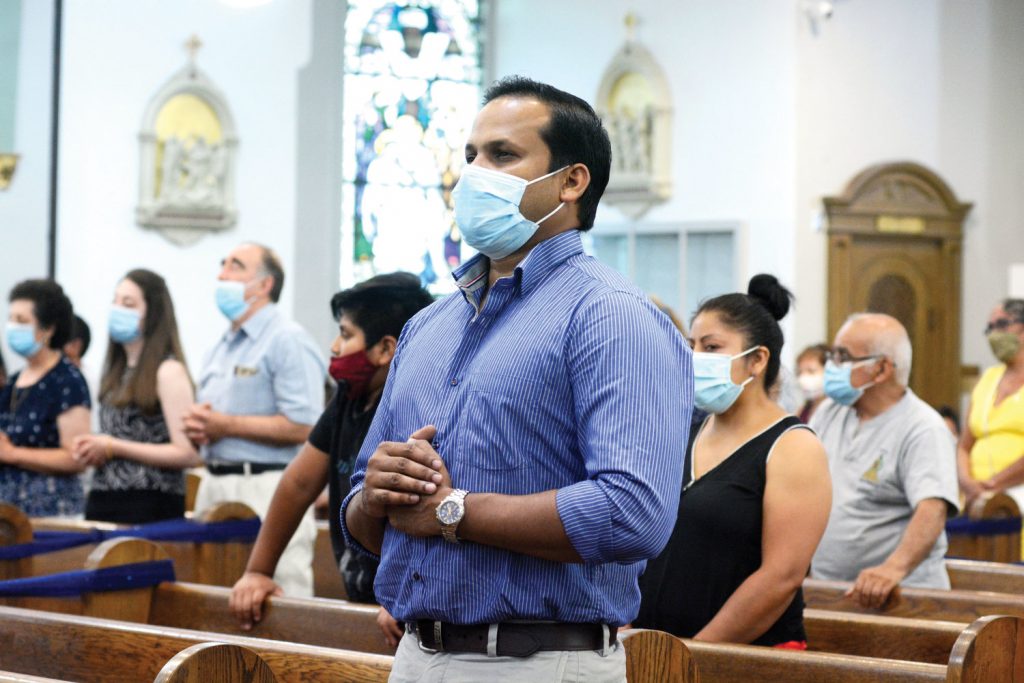
So ordinary. Feet on the floor, knees and hips straightened up, the back . . . A straight back, maybe not. You can bow. Likewise with the head. As long as it’s still on the neck 😊. So, you simply just stand. Nothing exceptional. And yet – such a posture is quite often a part of what we call body language. Language is essential not only in interpersonal relationships but also in our relationship with God. But no, God knows everything, it doesn’t depend on what we say, the posture we adopt, or the gestures we make. It’s we who need it more. So as to express what the heart wants to say.
What is it the posture of standing expresses? Human convention tells us we should stand to greet someone. To remain sitting in such a situation could be taken as ignorance. We get up when an important figure enters. The Judge enters the courtroom, the Captain into the mess. Receiving a figure standing in our interpersonal relationships is a way to show someone respect. Likewise, when I stand to pray: so, according to expression of human gestures, standing before God shows Him respect. But . . . There is in the posture of standing something significantly more important.
It is the posture of readiness. Being prepared for action. For work, hit the road, defend, dispute, fight. I’m standing means I am ready: vigilant, to take action at any moment. We can find many instances of this intuition related to standing in the Bible. What did God say to Elijah when He wanted to send him to Zarephath? He began with “get up!”. “Get up and go”. Similarly, the angel waking up this same Elijah, when discouraged he lay down and wanted to die. “Get up and eat”. “Get up and eat because there is along way ahead of you”. The road to Horeb, to Sinai where he was to encounter and hear God in the quiet breeze to tell him what to do next. And that is how it is many times in the Bible: first, there is “get up”. Then do this and that. Because when we do anything else other than what I’m doing now – resting, eating, dusting under the bed – I have to first get up.
It’s interesting that in the Bible it’s similar when a man asks God for help. So, in the psalms we often hear “Rise up, O Lord” or something the like, and then, “save me” or “do not let men triumph over me”. As for “get up” it was a condition even for God to do anything for us. Obviously, God does not have to stand up to do anything, but this prayer shows how strongly rooted it is in our consciousness that being ready to act is linked to standing. When you lie down, sit or even kneel, you aren’t able to deal with the new challenge waiting you until you get up.
When I stand before God I say to Him with my body: I am ready. I am ready to follow You, fulfil Your will, to embody into life what You teach. Looking at the moments when we stand during the liturgy . . . Is there any better way to show God honour than to say we are ready to follow the path of His Son, to embody His Gospel and with Him to praise God?